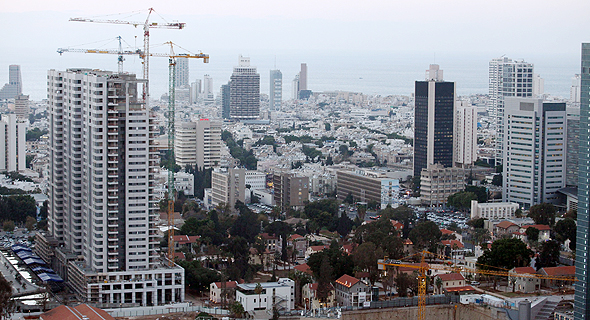Startup Employees Make Double the Average Israeli Wage, Report Says
A Monday report by the Israeli Central Bureau of Statistics reveals startup employees make an average monthly wage of approximately $5,780, with Tel Avivian startup workers earning on average approximately $1,550 more than their Jerusalem counterparts
10:2231.12.19
The average monthly wage of a startup employee in Israel is NIS 20,000 (approximately $5,780), twice as much as the country’s general average wage, according to a Monday report by Israel’s Central Bureau of Statistics (CBS). For larger startups employing between 21 and 50 people, the average wage is NIS 23,000 (approximately $6,650), the report stated.
 Tel Aviv. Photo: Orel Cohen
Tel Aviv. Photo: Orel Cohen
Geography also makes a difference. In Tel Aviv, startup employees make on average NIS 22,100 (approximately $6,390) a month, while in Jerusalem they will have to settle for NIS 16,700 (approximately $4,830), or only 1.3 times more than the general average monthly wage.
 Tel Aviv. Photo: Orel Cohen
Tel Aviv. Photo: Orel Cohen
The report, which relies on tax authority data and on filings submitted to Bituah Leumi, Israel's national social security agency, also reveals that 5,313 new startups were founded in Israel between 2011 and 2018, but 2,387, or 45%, closed or froze their operations by 2018. In total, 4,363 startup companies were active in Israel in 2018, a 6% drop from 2017 but an overall annual increase of 5% since 2011. Those companies employed 29,000 people in 2018, making for an annual increase of 7% since 2011. Seventy three percent of startups and 79% of jobs were concentrated in the greater Tel Aviv area, and 64% of companies were in the software industry.
According to the report, the Israel Innovation Authority (IIA), the government’s tech investment arm, gave research and development grants to 13% of active companies in the years 2016-2018, spending a total of NIS 1.7 billion (approximately $491 million in current exchange rates). In 2018 alone the authority gave NIS 589 million (approximately $170 million), mostly to medtech startups.



